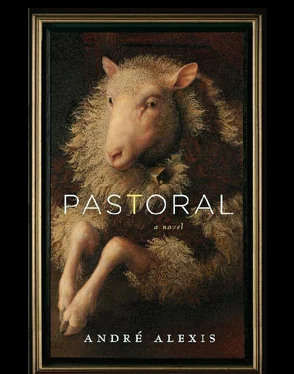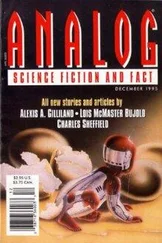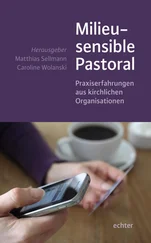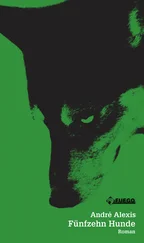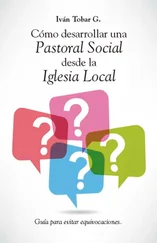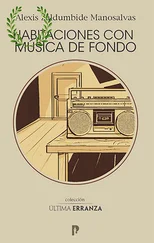— Well, Father Pennant said, Lowther must have done the sheep thing somehow. Sheep don’t go around talking.
— It would be good if they did, said Heath. Human conversation isn’t always entertaining. You’d want to talk to the really smart sheep, though, the ones who’d thought about things.
— I don’t know about that, said Father Pennant. The best thing about sheep is there’s probably no sheep philosophy.
— That you know of, said Heath.
There really was something impish about Heath Lambert. He was good company and Father Pennant could see why Lowther, a believer, had been close to Heath, the atheist. Of course, atheists were themselves believers and, inevitably, ended up on the same God-driven sledge as the faithful: He is, He is not, He is, He is not, ad infinitum. It was no surprise at all that Heath and Lowther had been close, when you thought about it.
— You knew Lowther’s mind better than I did, said Father Pennant. Let’s say he did make that sheep on Preston’s farm. What was he trying to tell me with all that talk about Nature?
— You got me there, said Heath. I don’t know. He was someone who really loved the earth. Every little detail about it. Mushrooms, insects, lice … there wasn’t anything Lowther didn’t love, but he managed to love God too. I don’t think there was any difference between God and Nature, in his mind. Then again, maybe he really did think Nature isn’t enough and he was trying to warn you, for some reason. Of course, if Lowther didn’t have anything to do with this sheep, maybe you did see God. That’d be bad luck, as far as I’m concerned. You look in the Bible. Once God speaks to you, your life’s pretty much ruined, isn’t it? Not too many happy prophets, are there, Father?
— No, said Father Pennant, that’s true. Thank you for your thoughts, Heath. Most of what you said sounds exactly like Lowther’s thinking. There’s one more thing I’d like to ask. Lowther left me to take care of his money. What do you think he would have wanted me to do with it?
— I think he wanted you to do whatever you thought was best. He told me so. He trusted you, even if you only knew each other for a little while. He trusted you more than he trusted me, I can tell you. He thought I’d waste the money on the greenhouse I’m building. And he was right. I would spend it on my greenhouse. But you should do what you think is right.
— You mean give it to charity?
— If that’s what you think is right. About the only thing we know for certain is that he didn’t want to put his money in a greenhouse. If he had, he’d have left it for me.
The day was done. The sun torched the last of the clouds. An evening breeze blew through the rectory, playing with the tablecloth and the cloth napkins.
— That was a great meal, said Heath, rising.
— I’m glad you liked it, said Father Pennant. You should come around more often. I enjoy talking about Lowther.
— Listen, Father, said Heath, before I go I want to say something and I don’t want you to take it the wrong way. I used to say this to Lowther all the time. I really don’t know why someone as sharp as you would believe all that mumbo-jumbo the Church tells you. Even if you leave aside the whole question of God, there’s no reason someone like you has to live on his knees, if you know what I mean. Don’t get me wrong. I’m not the kind of atheist who hates people who don’t believe what he does. I just wanted you to know how I feel, since we’re likely to spend some time together and I don’t want to hide anything.
— So you think the earth is enough?
— No, I don’t. I think there’s plenty we don’t understand, plenty, and if the earth was enough we wouldn’t have to go looking for it. What I think is: there’s enough mystery in this life without dragging incense and holy trinities into it.
— I know what you mean, said Father Pennant, but I’m beginning to wonder if there’s any real mystery or if the mystery’s all in our heads. Maybe the earth is enough, Heath. Anyway, if I were going to lose my faith in God, I wouldn’t replace it with faith in chance and nothingness.
Heath laughed and shook his finger as if to say no.
— That’s exactly the kind of thing Lowther would have said. We’re going to have to keep this conversation going.
The men shook hands and Heath walked from the rectory.
Though he lived outside of Barrow and he was, more or less, an atheist, Heath and Christopher Pennant would become close friends during the priest’s short stay in Barrow. This was in part because each was bound in the other’s memory with memories of Lowther, and they would inevitably speak of Lowther when they met. But it was also because they were — as they discovered — temperamentally suited and had a number of interests in common.
The weeks following Lowther’s funeral were among the last that preceded Elizabeth’s marriage to Robbie Myers. September 30th approached like the date of a final verdict.
A week before the wedding, members of her extended family began to arrive in Barrow. Her aunts, uncles, cousins and grandparents all came to wish her the best. The house she had lived in for most of her life, the house she would be leaving if she married Robbie, became a noisy and convivial world of Dennys, Youngs and Constables. It was a diverse but, at least over the short term, pleasant gathering of people. There were those who could not eat cheese and those on diets who ate nothing but fruit. There were those who would not sleep in soft beds and those who would sleep anytime and anywhere. There were any number of odd personalities and quirks of behaviour so that, at times, one wondered what it was that linked them all. But then, as if in answer to that very question, one noticed that most shared some physical feature or other: a nose, hazel-green eyes, ears that stuck out, body types. Depending on how one looked at it, ‘family’ was a word for a funhouse mirror in which Youngs, Dennys and Constables were changed and distorted or it was a word for what persisted despite the distortions. It was also, of course, a thing that held an intimation of her parents. As such, there was nothing more precious to her.
Along with the influx of family came Elizabeth’s closest friends. They organized her bridal shower. They forced her to her own hen party, which was held on Ladies’ Night at a strip club in Sarnia. The men were all nicely built, but the last thing Elizabeth wanted to do was to touch any man’s package for luck. Her friends, who had set it up so Elizabeth could feel Donny the Horse for herself, were disappointed when she refused — this after they’d plied her with vodka and tonic. But they themselves manhandled the unfortunate Donny until Elizabeth felt sorry for him and wondered if a penis could bruise, a consideration that made her think of apples and, because the man was monstrously endowed, the arm of a shaken baby.
Throughout the week, Barrow itself seemed charged with a new spirit. On its streets, Elizabeth was warmly greeted by all those planning to attend the wedding. John Harrington made a seven-tiered wedding cake and, the day before the wedding, displayed it in the window of the bakery. Elizabeth herself was said to be radiant. Radiant, radiant, radiant, until she wondered if her skin tone had changed. Whenever she spoke to Robbie, he seemed resolute and happy, the very things she would have liked to be.
Then, because it was inevitable, her wedding day came. Elizabeth was awakened at five in the morning by her aunt Anne, who could not sleep. Her wedding day was, for her aunt and uncle, as so many Christmases had been for her. As the rest of the house slept, the three of them ate a simple breakfast — fresh milk, bran flakes and maple syrup — and then went out to the fields, their family alone together one final time. The sun, when it crested the horizon was so bright they turned to keep it at their backs, walking some distance without speaking. Elizabeth had nothing to say. Her uncle John, a quiet man anyway, could think of nothing to say. And her aunt Anne was overcome by emotion, and so no words came to her. After a while, John Young took his wife’s arm and sang as they walked:
Читать дальше
